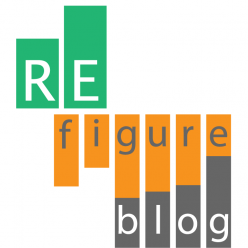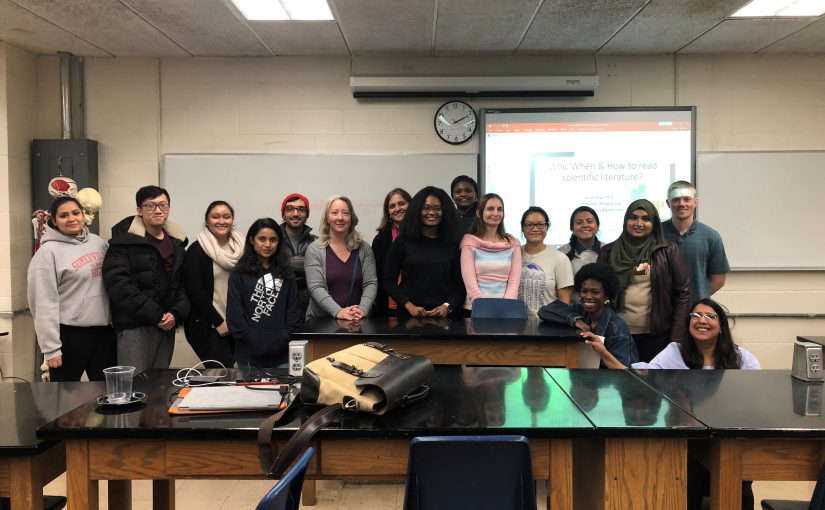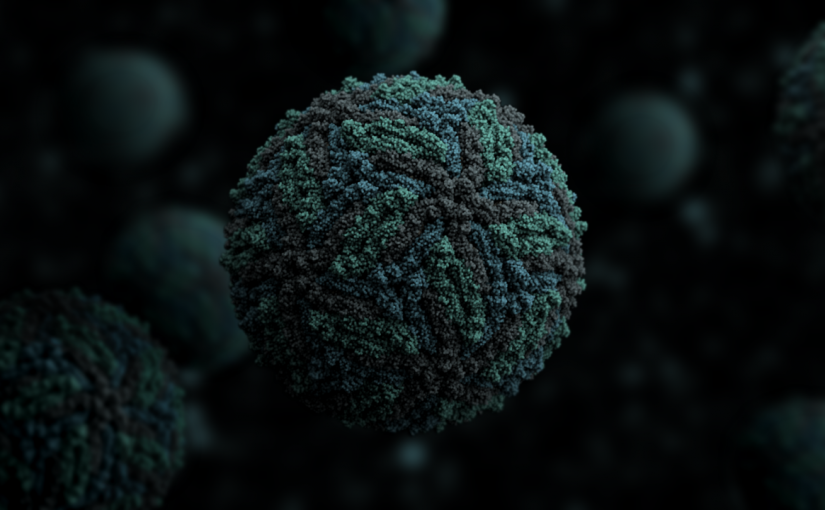The undergraduate course offered by ReFigure taught me a lot. First and foremost, I’ve learned to pay attention to figures in scientific articles and analyze the information reflected in figures and their corresponding legends. One piece of advice I constantly heard from college professors about reading the papers was: “Pay special attention to figures”. However, it was very easy to ignore that advice and slip into a habit of simply reading the article, trying to understand every single word and paying very little attention to figures. Continue reading Feedback on the ReFigure Undergraduate Course
Category: Researcher Experiences
Free Course: find, read, share papers and conduct literature reviews
Welcome to the a free online course designed by ReFigure team for undergrads, masters and PhD students.
Learning objectives Continue reading Free Course: find, read, share papers and conduct literature reviews
Why, Where and How to read scientific literature
October 22-26 was the first statewide STEM week, to accelerate student engagement in science and technology. Bunker Hill Community College participated in STEM week with various presentations and demos to students.
ReFigure’s presentation was an introductory, interactive session to introduce Community College to scientific literature, new tools to make finding, reading scientific literature easy and finally to build an online presence by sharing scientitic news. Continue reading Why, Where and How to read scientific literature
Undergraduate Research: Making the Most of a Short Time.
For many of us, our time as undergraduate researchers served as the starting point for our scientific careers. This short, but critical time period is when students gain their first experience with research outside of the optimized, and time-tested, experiments found in teaching labs and textbooks. Like many others at universities around the country, I have taken an interest in mentoring this next generation of scientists and have run into the unique challenges that these students face. These challenges center on the short time period with which these students have to make progress in the laboratory, both in terms of hours per week and total years in the laboratory. While no amount of technology can replace great mentorship, new tools are being developed to allow students to more rapidly obtain and understand the scientific literature which allows them to make more significant contributions to their chosen fields.
Before one can begin to make intellectual contributions to a particular field one must first understand the current status of knowledge on the topic; what is understood, and what questions remain to be answered. For established and new researchers alike that generally means reading review articles. However, undergraduates often find review articles challenging; having heard the frustrations of many students I have come to realize that their struggles are remarkably consistent and fall into three major categories:
1) The reviews are too broad, leaving the student unsure as to what information is important to understand.
2) The reviews are outdated. Without much experience in critically reading and evaluating the primary literature, undergraduates are unable to transition into the primary literature to pick up where a review leaves off.
3) Finally, with perhaps only a minimal amount of introductory classes, students find reviews written with too many assumptions about the academic background of the reader.
Fortunately, a variety of websites now exist to help address these concerns.
Hypothesis (https://web.hypothes.is/) is a site that allows users to write notes on both webpages and pdfs. Undergraduates, along with their mentors, can use this site to annotate publications. Concepts deemed most important can be highlighted, while particular figures that underlie the lab’s research could be highlighted. Additionally, advanced concepts can be explained in the margin so as to define terms without breaking the flow of the paper.
ReFigure (https://refigure.org/) allows users to capture and comment on figures from the literature. Mentors or senior students could create highly specific “reviews” by combining all relevant figures into a single collection. Through the commenting feature, users can point out important information or define concepts as needed. Since ReFigures can be constantly updated with new publications, this resource is never out of date. As ReFigures link to the source publications, this resource allows undergraduates to seamlessly transition into reading the primary literature as their understanding of the topic progresses.
Many fields have decades worth of primary literature to comb though, a process that is daunting to even the most seasoned scientists, let alone undergraduate researchers. Open Knowledge Maps (https://openknowledgemaps.org/) allows a user to input search terms resulting in a connecting web of concepts with links to publications. Not only is this site great for uncovering key papers in the field, but it also allows for the visualization of how one topic fits into the broader literature base.
These resources are only a few of the many examples of websites and tools that can be used to make the most of the short amount of time that undergraduates have in the laboratory. Once undergraduates get started in their laboratories they are faced with a new obstacle, lack recognition for their hard work. This is an important point for both students and their mentors, which I will address in a second post about how new technology can benefit undergraduate research.
Reader feedback: Ben Masuch
ReFigures are useful for various insights. One particular use that we are exploring in detail is antibody reproducibility. We showed an antibody ReFigure to Ben Masuch, a life science product specialist (https://www.linkedin.com/in/ben-masuch-078a1252) and asked what the ReFigure communicated to him. Here is what he had to say: Continue reading Reader feedback: Ben Masuch
User feedback: Pablo Ranea
 Pablo Ranea, a postdoctoral Scientist at Bellvitge Biomedical Research Institute, Spain recently tried ReFigure. Here are his comments… @pranea https://www.linkedin.com/
Pablo Ranea, a postdoctoral Scientist at Bellvitge Biomedical Research Institute, Spain recently tried ReFigure. Here are his comments… @pranea https://www.linkedin.com/
” I created a Refigure as a test and I have to say that I liked the extension pretty much” Continue reading User feedback: Pablo Ranea
Comparing conflicting data with ReFigure
Conflicting literature is a fact of life in academic research. Labs in conflicted fields undoubtedly have opinions about which experiments and publications are favored and why. However, a public platform for comparison does not exist, meaning that all the insights from discussions that occur between colleagues and at lab meetings are not distributed to the scientific community at large. ReFigure has given me a mechanism to conduct comparisons between publications, helping to discern the subtle differences in expression systems, experimental setup, or cloning that might explain conflicting results. Not only can I use ReFigure to organize my own thoughts so as to progress my research, it allows me to organize these ideas publically to help others in my field. I invite you to read further and view my ReFigure.
Refiguring Zika with Christa Osuna
As we gear up for product development, we have started using the researcher experiences that motivated the creation of ReFigure as user stories and case studies. As the first in this series, we introduce virology postdoc Christa Osuna and her work on Zika. Continue reading Refiguring Zika with Christa Osuna








